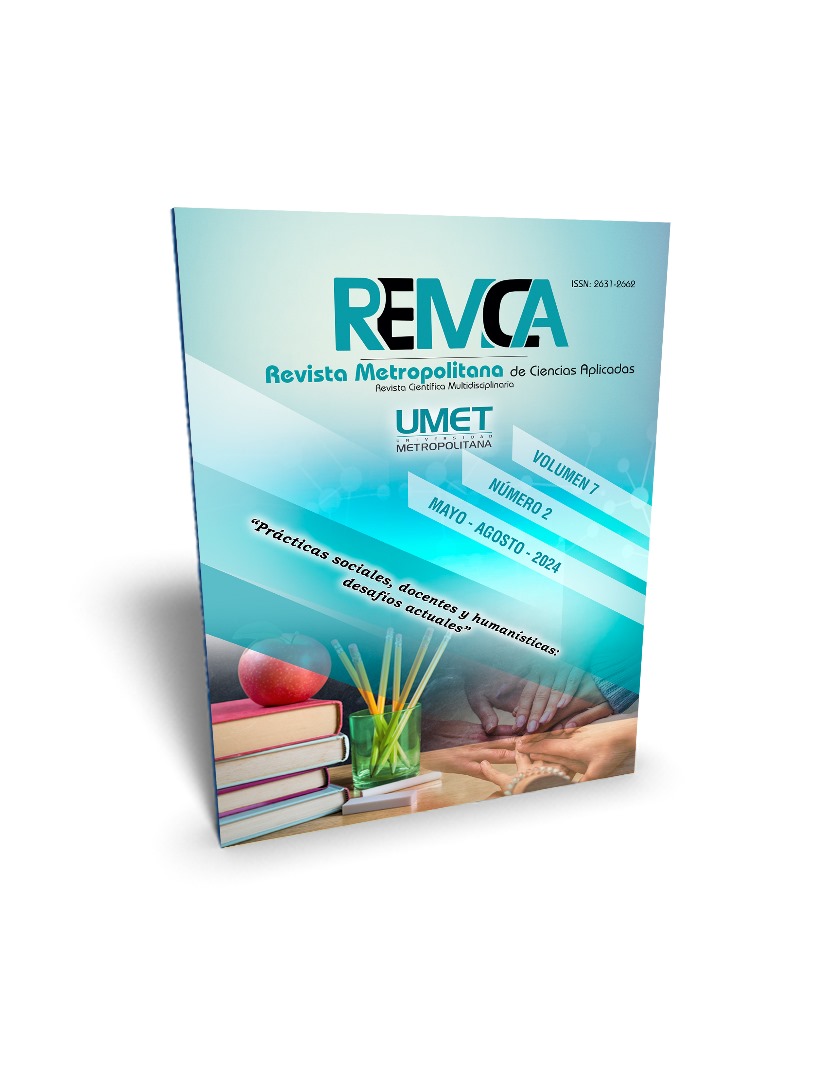Fiscal incentives for biodiversity conservation in the Latin American context
DOI:
https://doi.org/10.62452/a8xxnp38Keywords:
Taxation, fiscal policies, biodiversity, taxation, environmentAbstract
Tax incentives are a key tool for biodiversity conservation in Latin America, promoting participation in environmental protection. The objective of this study is to analyze tax incentives in the region and their impact on conservation. A literature review of studies and legislation in Latin American countries was carried out. The results show that tax incentives promote investments in sustainable projects and contribute to sustainable economic development. However, their implementation faces challenges such as the need to balance tax collection with conservation objectives. In conclusion, tax incentives are vital for biodiversity conservation, however, continuous evaluation is required to ensure their effectiveness and adaptability to local needs.
Downloads
References
Alburquerque, F. (2021). La biodiversidad, los servicios de los ecosistemas y el desarrollo territorial. https://www.franciscoalburquerque.com/wp-content/uploads/2021/06/19.-ECONOMIA-DE-LOS-ECOSISTEMAS-Y-LA-BIODIVERSIDAD.pdf
Andrade, J., & Espin, J. (2021). Los beneficios e incentivos tributarios para el impulso del sector turístico en la provincia de Cotopaxi. Los beneficios e incentivos tributarios para el impulso del sector turístico en la provincia de Cotopaxi. (Trabajo de Titulación). Universidad Técnica de Ambato.
Cabra, A. L. (2023). Empresas amigables con el ambiente, más allá de un impacto ambiental positivo. https://www.radionacional.co/actualidad/medio-ambiente/empresas-que-ayudan-al-medio-ambiente-y-beneficios
Cangui Navas, L., Casa Taco, A., & Avellán Herrera, N. (2023). Las reformas tributarias sobre incentivos fiscales en Ecuador y su relación con los resultados contables de las pequeñas empresas del sector comercial de Cotopaxi. Bolentín De Coyuntura, (36), 26–32. https://doi.org/10.31243/bcoyu.36.2023.1960
Cornejo Ramón, J. G., & Cárdenas Cifuentes, M. . (2021). El principio quien contamina paga aplicado a las micro, pequeñas y medianas empresas del Ecuador, ¿es eficaz? Iuris Dictio, 27(27), 13. https://doi.org/10.18272/iu.v27i27.1824
Comisión Económica para América Latina y el Caribe (CEPAL)/Oxfam Internacional. (2019). Los incentivos fiscales a las empresas en América Latina y el Caribe. CEPAL. https://repositorio.cepal.org/server/api/core/bitstreams/12a60d14-6a34-4c0e-b1ab-e4658964622f/content
Dourojeanni, M. J. (2022). Perspectivas del manejo de la fauna en América Latina. Ecología Aplicada, 21(1), 77-89. https://doi.org/10.21704/rea.v21i1.1877
Ecuador. Congreso Nacional. (2010). Código Biológico sobre Producción. Registro Oficial 351. Ediciones Legales. https://www.aduana.gob.ec/gacnorm/data/CODIGO-ORGANICO-DE-LA-PRODUCCION-COMERCIO-E-INVERSIONES.pdf
Ecuador. Secretaría del Medio Ambiente y Desarrollo Sostenible. (2023). Gobierno del Estado de Mexico. Obtenido de Áreas Naturales Protegidas. https://sma.edomex.gob.mx/areas_naturales_protegidas
Echeverría, A. (2023). Regímenes con beneficios fiscales en Costa Rica. https://www.lexology.com/library/detail.aspx?g=172239e5-9c36-4b9e-8de7-f1a88afc2611https://revistas.uta.edu.ec/erevista/index.php/bcoyu/article/view/1960/version/2614
Ferré, O. E. (2020). Doctrina Presupuesto y ambiente. Incentivos fiscales. https://aldiaargentina.microjuris.com/2020/10/08/doctrina-presupuesto-y-ambiente-incentivos-fiscales/
Lavado, K. (2021). Valoración económica y disposición a pagar por la conservación: aplicación de indicadores de la biodiversidad. (Tesis doctoral). Universidad Nacional Agraria La Molina.
Magallanes, R. M., & Avila, A. L. (2022). EL Banco Interamericano de Desarrollo como actor clave en la promoción del modelo neoliberal de ciudad sustentable del Área Metropolitana de Mendoza, Argentina (2011-2021). Huellas, 26(1), 83–103. https://cerac.unlpam.edu.ar/index.php/huellas/article/view/6348
Maldonado, I. O., Chávez, D. R., & Bravo, O. M. (2021). Áreas naturales protegidas y participación social en América Latina: problemas y estrategias para lograr la integración comunitaria. Región y sociedad, (32). https://doi.org/10.22198/rys2020/32/1277
Medinilla, M. (2023). Gobierno de Brasil extiende exenciones fiscales a casi 200 proyectos renovables. https://www.energiaestrategica.com/gobierno-de-brasil-extiende-exenciones-fiscales-a-casi-200-proyectos-renovables/
Metre, J., & Sorhuet, V. (2021). Incentivos Fiscales con Impacto Ambiental. https://www.gub.uy/direccion-general-impositiva/sites/direccion-general-impositiva/files/2023-11/UCU%2By%2BORT%2B-%2BIncentivos%2BFiscales%2Bcon%2BImpacto%2BAmbiental%2B-%2BMetre-Sorhuet.pdf
Meyers, D., Bohorquez, J., Cumming, T., Emerton, L., Heuvel, O., Riva, M., & Victurine, R. (2020). Conservation Finance: A Framework. Conservation Finance Alliance. https://www.conservationfinancealliance.org/cfa-white-paper
Segura, P. (2022). El largo camino para proteger la biodiversidad en Chile: acuerdos y desacuerdos en torno a la Ley SBAP. https://www.elmostrador.cl/destacado/2022/06/17/el-largo-camino-para-proteger-la-biodiversidad-en-chile-acuerdos-y-desacuerdos-en-torno-a-la-ley-sbap/
Valdivieso, O. G. (2021). Impuesto y medio ambiente en el Ecuador. Universidad Internacional del Ecuador. https://repositorio.uide.edu.ec/bitstream/37000/4612/1/LIBRO%20IMPUESTOS%20Y%20MEDIO%20AMBIENTE%20EN%20EL%20ECUADOR_C.pdf
Downloads
Published
Issue
Section
License
Copyright (c) 2024 Carolina Elizabeth Mosquera-Ochoa, Juan Bautista Solís-Muñoz (Autor/a)

This work is licensed under a Creative Commons Attribution-NonCommercial-ShareAlike 4.0 International License.
Authors who publish in Revista Metropolitana de Ciencias Aplicadas (REMCA), agree to the following terms:
1. Copyright
Authors retain unrestricted copyright to their work. Authors grant the journal the right of first publication. To this end, they assign the journal non-exclusive exploitation rights (reproduction, distribution, public communication, and transformation). Authors may enter into additional agreements for the non-exclusive distribution of the version of the work published in the journal, provided that acknowledgment of its initial publication in this journal is given.
© The authors.
2. License
The articles are published in the journal under the Creative Commons Attribution-NonCommercial-ShareAlike 4.0 International License (CC BY-NC-SA 4.0). The terms can be found at: https://creativecommons.org/licenses/by-nc-sa/4.0/deed.en
This license allows:
- Sharing: Copying and redistributing the material in any medium or format.
- Adapting: Remixing, transforming, and building upon the material.
Under the following terms:
- Attribution: You must give appropriate credit, provide a link to the license, and indicate if any changes were made. You may do this in any reasonable manner, but not in any way that suggests the licensor endorses or sponsors your use.
- NonCommercial: You may not use the material for commercial purposes.
- ShareAlike: If you remix, transform, or build upon the material, you must distribute your creation under the same license as the original work.
There are no additional restrictions. You may not apply legal terms or technological measures that legally restrict others from doing anything the license permits.




